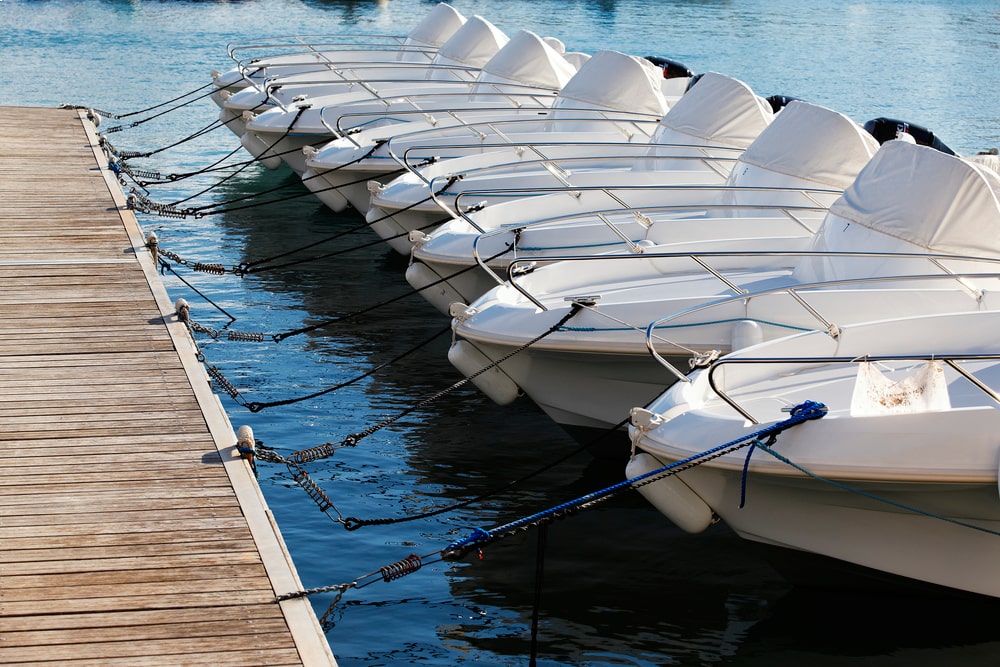Guide To Buying Your First Boat
Key Tips When Buying Your First Boat
It’s normal to have a mix of emotions when you are about to buy your first boat. Buying your first boat is like getting your dream house. And of course, this purchase is a major investment that could mean your lifetime of savings. That is why you need a good boat buyers guide to help you through the process.
Owning a boat in San Francisco Bay means you can enjoy whatever the water offers. You can fish in the deep sea or fish at the bay. You can join San Francisco water sports events. Maybe, you want to have a cruising luxury in your comfort. Or you can simply sail away for a few days and forget the bustle of the city.
Being on the water is like having a home away from home. It’s going to be your escape and sanctuary. You will have a second place to store some supplies or keep your clothes. Having something to look forward to after a busy week is more than just rewarding.
And if you’re living in San Francisco, you’ll never run out of things to do in the water. So why not own a boat?
They’re eco-friendly. There are plenty of regattas, waiting for you to join in. Besides, technologies available on a boat offer exciting experiences and convenience while aboard.
Whatever your reasons are for buying a boat, be prepared. You don’t want to be clueless about the prerequisites of purchasing a new boat. There are so many considerations before doing so, and the amount you’re going to spend is not a joke.
For this reason, you need a guide as a reference for this valuable purchase. Our Boat Buyer’s Guide is designed to help you make the right choice for your first boat.
Table of Contents

Buying a Boat – First time boat buyers guide
Buying a boat is not like picking canned goods in the supermarket. You need to know what you want from a boat before going to a boat dealer. Be equipped with first-hand preferences when you talk to a dealer. When you go there, you must at least have narrowed down your options.
If you have no prior experience with boats, you may have a hard time initially boating. You may even struggle with the expenses and maintenance needed.
So before closing a deal, here are the things to know about and decide. Key tips to help you decide which boat is right for you.
- Where will you use the boat?
- What is the type of boat you want to use?
- Would you buy a new one or settle with a second-hand unit?
- How much space will it take, and how big should it be?
- What is your budget?
- Can you keep up with the maintenance and care required for your boat?
These are just initial questions. Of course, to answer these questions, you need to research. Let us get to these steps in-depth.
1. How To Choose The Right Boat For Your Needs.
There are a lot of activities to do with a boat. According to Statista, over 50 million Americans went fishing in 2019. This was on saltwater, freshwater, and fly fishing, combined. It turns out that recreational fishing is beneficial to mental health. So if you decide to spend more time on recreational fishing, you will need a fishing boat.
Fishing Boats
For fishing, your choices are:
- An all-purpose fishing boat
Your best choice for fishing. An all-purpose boat can be used in different waters. A good one with enough power is capable for using skiing and tubing.
- Bass boats
These are fishing boats that float lower on the water. They are small boats often used for targeted fishing and by hand.
- Bay boats
Bay boats are flatboats that go in between deep-draft boats and shallow-draft boats. Although they are great for fishing on coastal bays, they work as day boats and won’t suit rough waters.
- A fish-and-ski boat
As the name implies, these are a bit of a fishing boat and a water sports boat. This sports boat can have fish-finding features, which are pretty versatile.
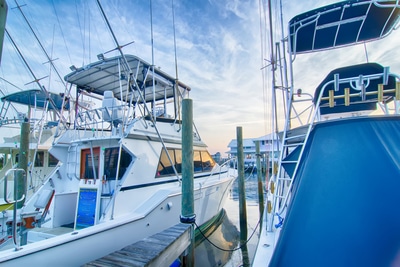
Performance and Family Based Boats
Your decision to buy a boat also depends if you want to engage more with water sports. You can get yourself a water ski or a wakeboard.
If you want to spend time boating with your family, you can choose among:
- Bowriders
There is an area dedicated to sitting down on the bow of this boat. This is great for water skiing, tubing, or swimming and can accommodate up to ten people. - Pontoons
Pontoons are used mainly on inland water, so you’ll probably not find them in San Francisco Bay. - Deck boat
Deck boats are great for all-day cruising and generally offer a wide space. They are similar to bowriders, but they are much bigger. You can use it for cruising, water sports, entertainment, and fishing.
- High-performance boats
These are the powerboats that get the most attention in the marina. High-performance boats top up to 100 mph.
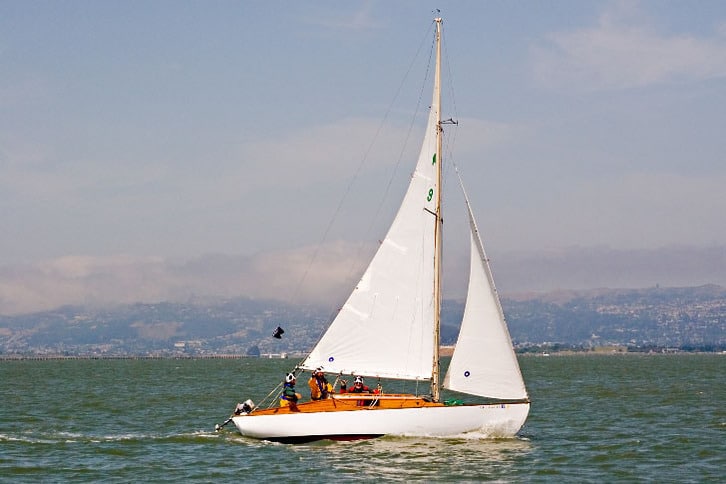
So before deciding what boat type to buy, determine the activities you want to do with the boat.
- Are you likely to go fishing?
- Would you like to do water skiing or do some water sports?
- Will you sail away alone or go boating with your family?
- Do you want to sleep or live on your boat?
Boats For Overnight Use
If you intend to sleep on your boat, you can get:
- A cuddy cabin
Although most cuddy cabins are used boats.
- Cabin cruisers
These cruiser boats can accommodate up to six people.
- Flybridge boats
You can find the steering wheel on a flybridge and above the main cabin. You can live on this boat, and there’s plenty of space for entertainment.
- Trawlers and fishing boats
These are larger boats that you can use for your journey. You can even find kitchens here.
Now that you know what types of boats there are, it is time to decide if you will buy a pre-owned boat or a new one.
2. Should I buy a new or used boat?
Why should you get a new boat?
A brand new boat doesn’t have pre-existing issues. You know that it is supposed to be in great shape. You can enjoy the latest innovations and technology in the boat you prefer. Your hands will be the first ones to get a grip on its steering wheels.
Another advantage of a new boat is you can get exactly what you need and are looking for. You can customize it according to your preferences. Besides, if something goes wrong, there is always a warranty to back you up.
Why should you get a pre-owned boat?
It is relatively a cut away from the original price. You won’t be too sensitive to having scratches knowing someone did it before you.
One of the best advantages of pre-owned boats is that they have been tested and proven reliable. And if ever there are problems with the motor, the former owner must have dealt with it. A well maintained motor adds more value to the boat.
Used boats also have cheaper insurance.
You also have the option to obtain your new boat by trade-in from a boat dealer or through a broker.
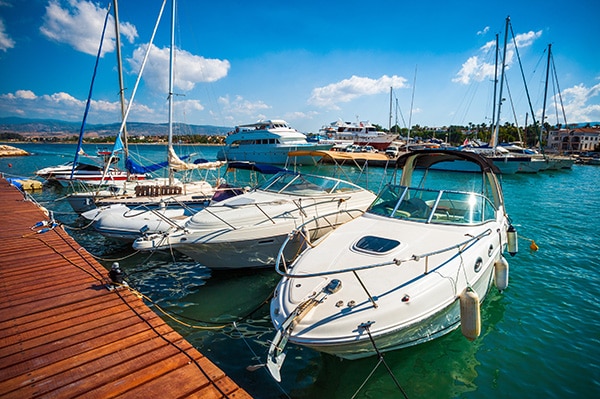
Things to consider when buying a used boat
When you are about to buy a used boat, you will have to consider the following:
- Your preferences (boat type, capacity, boat size, usage)
- Your spending limit
- Modifications needed
Things to inspect for on a used boat:
- Pre-existing issues and damage
- Fuel and oil
- Signs of mold or mildew
- Engine
- Leaks
- Seating, storage, and steering wheel
- Electronics and technologies
Proper Certification Needed
The National Marine Manufacturers Association issues certification for boats that meet their standards. The American Boat and Yacht Council has set more comprehensive standards. These help buyers find reliable and safe boats.
If you opt to buy new boats, you can go to NMMA boat shows. These certifications go by every boat type, ensure that it is safe when it comes to:
- Passenger seating and weight capacity
- Fuel system
- Ventilation
- Electrical system
- Navigation lights
- Steering
- Warning labels
- Flotation
- Horsepower capacity
3. What size boat should I get?
Your boat’s size measures from the stern to the bow. Sizing it correctly will save you a lot of hassle in the future. If you want to know how many people can accommodate a boat size, you have to divide its length by its width.
The smallest size you can get sits below 16 feet. It is enough if you are going to hop on and boat over shallow waters. It can be anywhere from a fishing boat, a canoe, an inflatable, or a personal watercraft.
If you want to go for a little excitement with in-shore fishing, your boat can sit anywhere from 17 to 20 feet. For bay boating, you can get any boat type at 20 to 30 feet.
An ideal boat size for water sports can go anywhere between 17 to 25 feet.
To choose a boat size, you have to consider your activities and the number of people you want to ride on your boat.
Also, you have to consider your storage and towing options when choosing the size of your boat. You can opt for dry or wet storage. The size affects how much to spend on storage.
Remember to look for certifications from:
- The National Marine Manufacturers Association, or
- The American Boat and Yacht Council.
So your decision overlaps with the amount you can spare for your boat size.
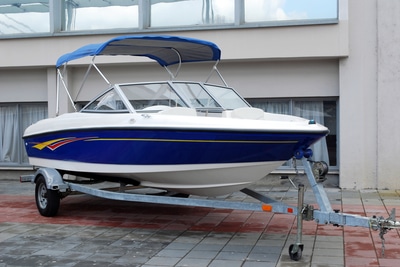
A big determinant of the size of boat that is right for you, is how much can your vehicle tow? Can your towing vehicle take the weight of your preferred boat? Compact SUVs, and a van can tow up to 2000 lbs. Small sailboats of up to 20 ft are about 1100 lbs.
Remember that fiberglass boats are heavier than aluminum boats. This makes a difference even if your boat is under 20 ft. Trucks and mid-size SUVs can take tow boats that are up to 3300 lbs. Now, if you opt for a large sailboat that goes up to 12,000 lbs, you will need a full-size truck.
To sum that up, you should consider the following when sizing your boat:
- Length
- Width
- Number of passengers
- The towing capacity of your vehicle
- Storage options
4. Learn about boat prices and values.
You are not only specifying the money you have shelled out upfront. You can compare how you determine the value and pricing of new and used boats just as how you do with cars or a new house.
First-time owners, who have no idea of boat storage costs, end up being surprised by this cost. Some even end up selling their luxury boats quickly to avoid the monthly fees.
Pricing depends on the boat brand, the equipment included, the boat size. It also depends on what additional gear and technology upgrades you have added. Also, consider your location. Boats for inland water will not make it to deep shore fishing. That means the price of the same boat type in San Francisco could be different from that brand sold in Michigan.
Usually, the price of new boats is non-negotiable unless the dealer offers some discount. That is not the case for used boats. Depending on your seller, you can negotiate for the pre-owned boats.
Major considerations when pricing used boats are:
- Model
- Size
- Age
Pricing used boats also depends on certain factors like the condition, equipment onboard, and location. Condition, affects how boats are priced. It considers, mechanical, rigging, and cosmetic condition of the vessel.
Pricing is affected by location. This happens because used boats in freshwater have less corrosion than in saltwater. The San Francisco Bay is an estuary, meaning the saltwater meets freshwater.
Finally, if the boat is well-equipped with the latest technologies, it can affect how a used boat is priced. Having radar onboard, a satellite communication system and AIS will increase a used boat’s value.
Towing towers, baitwells, and outriggers are great add-ons and add value to a pre-owned boat. Particularly, if they are still in great shape. Boat appraisal guides are of much help when estimating a used boat’s value.
5. Annual costs for owning a boat
Owning a boat can mean a lot of things to fix, especially if you are getting a pre-owned boat. The most challenging part is keeping your first boat in condition. You also have to think about paper works, licenses, taxes, storage, fuel, and more. So when you buy your first boat, you are not only going to pay for the boat.
Types of boats common in San Francisco
The common boats bought in San Francisco Bay area are:
- cruisers,
- day sailers,
- inflatable boats,
- cuddy cabins, and
- flybridges.
The boat costs can start at $13,000 for used ones with an average cost value of $90,000. Of course, a brand-new one would be more costly.
Boat Trailers
You cannot own a boat without a trailer unless you are willing to rent trailer renting services. If you’re buying from a dealer or boat show, it can be part of the bundle. Your boat trailer will be your buddy in transporting your boat from the waters to your storage area.
Aside from the boat itself, your boat trailer has separate maintenance costs. Maintenance for its brakes and tires
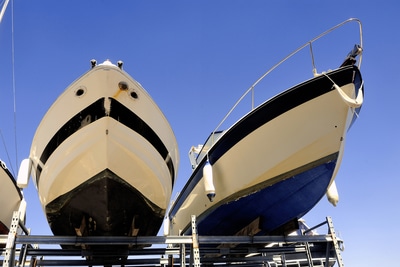
Moorage and storage options
If you have space in the garage to store a small boat, you will save a lot of monthly storage fees. You have options to store it at a dry rack or a marina. A boat storage shed would be more costly as it offers more protection. Marina fees can start at $10 per foot. For inside storage, it can start at $50 per foot.
Rates may differ during winter as it will include preparation for your boat and engine. In addition, marinas may charge more for guest aboard fees, utility fees, or car parking.
Whether you pay for dry or wet storage, they can go from several hundred dollars to thousands of dollars.
Safety items needed when boating
Before going out in the water, you need to equip yourself and your boat with some safety. Here are the safety items and equipment needed:
- Life jackets (starts at $20)
- Fire extinguisher (starts at $20)
- A fish finder with GPS (starts $100)
- Marine flare kit (an average price of $200)
- Marine Radio (starts at $90)
- Emergency Position Indicating Radio Beacon (EPIRB) ($200)
- Ropes (starts at $20)
- Boat oars (starts at $20)
Of course, we are talking about safety. You might, as well, invest in good quality than cheaper ones.
Insurance
Either you buy a new or used boat, you must pay for insurance. The amount to pay for insurance depends on many factors.
- Size
- Age
- Horsepower
- Value
- Boat type
- Condition
- Ownership
- Body of water used
- Used as a primary residence
- Homemade boats
What are the insurance policies available?
- Personal watercraft
- Yacht
- Sailboat
- Dinghy
- Boat for rent
- Professional
It depends on the coverage of your policy. They may cover damage, wear and tear, ice and freezing, design defects, or dents. Your insurance provider may help you with of items as well. Such as:
- medical payments,
- towing assistance,
- uninsured boater’s liability, and
- personal effects.
What are the insurance providers looking at?
- Your boating training, certifications, and safety education
- Cruising area
- Boating driving records
- Liability limits
San Francisco is subject to storms. Therefore, it pays to have storm cover from your insurance provider. This will help you cover future costs in case of storm damage.
Maintenance & repair
Your boat can last up to thirty years when provided with needed maintenance. Inboard and outboard engines differ in maintenance requirements and costs.
For inboard engines, it can go up to $500 annually. For outboard engines, 2-strokes can cost up to $300, and 4-strokes can go as high as $1,000 annually.
Other maintenance requirements include:
- cleaning the hull,
- waxing and painting the hull,
- plumbing,
- electrical components, and
- cleaning the deck.
You may also have to replace the sails after a few years.
In general computing, your annual maintenance costs can go up to 10% of the value of your boat. It also depends on the electronics and equipment you have in your boat.
Make sure to allot a budget for an oil change. And be ready for mechanical repairs.
The most important after-sales budget is your maintenance cost. Maintenance can help your boat last up to 30 years. Of course, don’t forget to pay your annual property tax.
Fuel
You do not have to spend more on fuel if you own a sailboat since it is wind-powered. For engine-powered boats, you will use gas. Your fuel consumption depends on how often you use your boat and how long you will stay on a journey. Remember that a vessel with higher horsepower consumes more gas.
Taxes
In San Francisco, you must file a Vessel Property Statement (Form 576-D) every April 1st of the year. In 2019, the applicable property tax rate was about 1.163% of the property value. Your vessel should be assessed annually.
Property tax alone has a maximum of 1%, but you may pay additional rates to pay for the indebtedness of the state.
Failing to file a Vessel Property Statement will lead to a 10% penalty.
Registration
Of course, you need to register your vessel like you register your house or car. Registering your vehicle to the Department of Motor and Vehicles (DMV) will need you to pay sales and use tax. This ranges from ranging from 7.5 to 10%. If your boat will stay in San Francisco waters within 120 days, you should pay the annual property tax.
You must register it with the DMV if it is about 8 feet and more in length.
If you purchased a recreational vessel worth more than $100,000, you will be subjected to pay federal tax.
It pays to talk about your registration requirements to your trusted dealer.
Your boat trailer is also subject to separate registration, including fees.
6. Inspecting a boat before purchase
Inspecting the boat includes surveying with a professional, especially for pre-owned ones. You also have to test-drive before the purchase.
A marine survey is essential because you have to verify that your boat is safe. Most lenders do not support financing the vessels not surveyed. You may have problems getting approval from your insurance provider if your vessel is not surveyed. A marine survey is useful in determining necessary upgrades and repairs. This is especially true for used units. Also, this process will help you find out its real value.
Make sure the surveyor is a member of the National Association of Marine Surveyors or Society of Accredited Marine Surveyors.
If it is your first time owning or driving a boat, seek help from marine surveyors and try the boat on the water. Check for the speed, the wheel, and the sun glare.
Ensure that the boat is safe and in good condition before closing the deal.
Final Tips On Buying Your First Boat
Purchasing a boat is a major decision. Now you don’t have to put that first boat purchase on hold because you lack knowledge. It’s time for you to make up your mind and see if you can sustain having a boat. And when you decide to buy one, ensure that you are dealing with the right people.
Take courses and acquire certifications for owning a boat. It will make your boating experience easier and safer.
Make sure to make a sea trial, and good luck on your first boat purchase!
